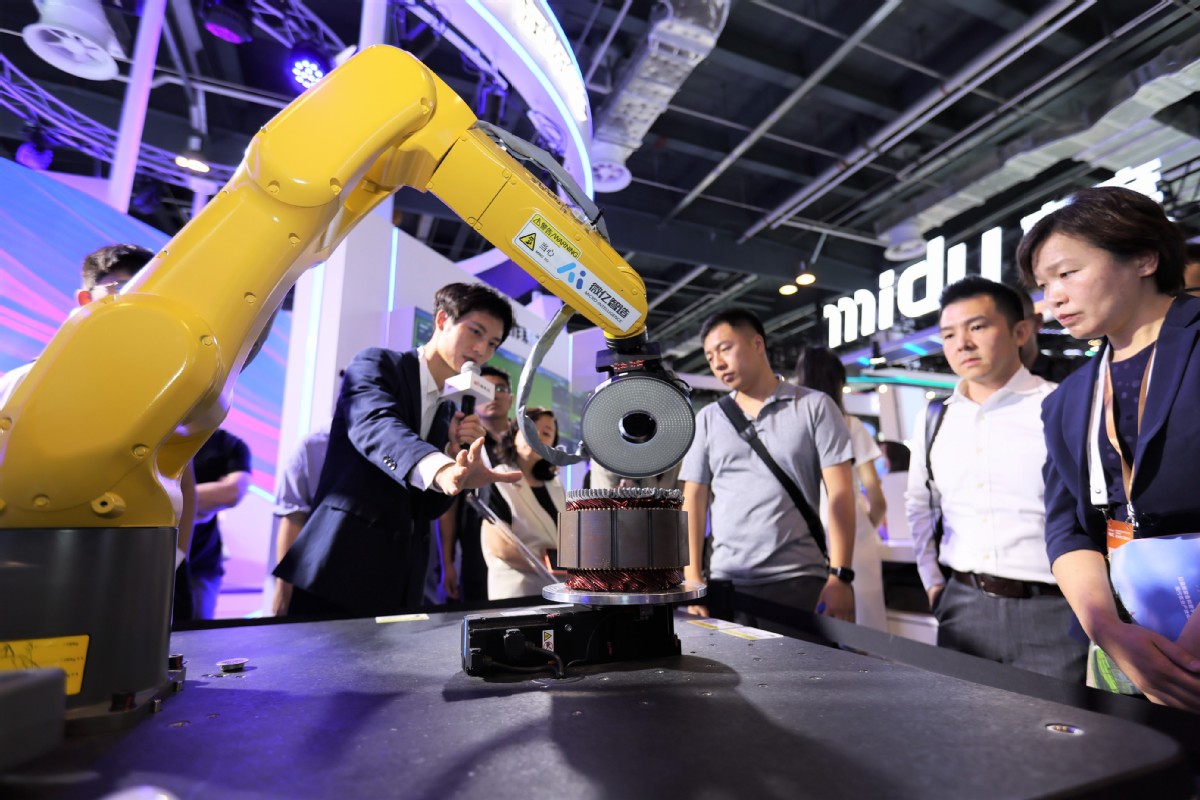Shanghai goes big on smart factories
By WANG YING in Shanghai | China Daily | Updated: 2024-01-05 09:01

Shanghai is determined to consolidate its leading position in intelligent manufacturing by building 70 new intelligent factories this year, and 200 new intelligent factories and 20 benchmark factories by the end of 2025, official sources said on Thursday.
Some 70 new intelligent factories covering key industries, including automotive, high-end equipment and electronic information, will be built this year in an effort to achieve systematic optimization and overall enhancement in products' full life-cycles, manufacturing procedures and various supply-chain processes, said Zhang Ying, director of the Shanghai Commission of Economy and Informatization, during a smart factory construction promotion conference in Shanghai on Wednesday.
The East China cosmopolis is the nation's largest integrated solutions provider for intelligent manufacturing systems and one of the core equipment industrial clusters of intelligent manufacturing.
As manufacturing is critical for China's overall development, intelligent manufacturing is vital in enhancing core competitiveness of the nation's industries. It also plays an important role in accelerating new industrialization, said Chen Jie, vice-mayor of Shanghai.
"Therefore, it is an inevitable choice for megacities like Shanghai to take smart factories as a key area for the digital transformation of the manufacturing sector, and to accelerate the construction of smart factories," Chen said.
In the past few years, Shanghai has consolidated its development of intelligent factories, expanding the ecosystem of intelligent manufacturing. It has also gradually improved the toolbox of innovative development policies.
With equal focus on both quantity and quality, Shanghai's intelligent manufacturing has developed well with all-around achievements to show for it, Zhang said.
"Shanghai has so far built 19 national-level smart factories, 100 municipal-level smart factories and more than 1,000 intelligent manufacturing applications. More than 70 percent of the city's industrial enterprises above the designated size, or with an annual revenue of 20 million yuan ($2.79 million) or above each, have conducted intelligent factory evaluation," said Zhang.
According to Zhang, the construction of intelligent factories has improved industrial enterprises' quality and efficiency. Production efficiency of Shanghai's intelligent factories has increased by more than 50 percent on average, while operational costs fell by more than 30 percent and energy consumption was down by nearly 14 percent.
"With support and help from various government divisions, we have constantly improved our intelligent manufacturing, and finally reached a high level of automation," said Xu Xiaoying, director of operations at Aptiv Electrical Centers (Shanghai) Co.
According to Xu, enterprises are increasingly benefiting from the integrated resources and industrial chain created by the Shanghai Commission of Economy and Informatization.
Through accelerated cultivation of a batch of world-class intelligent manufacturing system integration businesses, Shanghai has seen this segment's output value exceed 60 billion yuan, while the industrial scale of intelligent manufacturing equipment sector has surpassed 100 billion yuan, Zhang said.
For example, Shanghai's current robot density in key industries is 383 units per 10,000 people, the highest worldwide, said Zhang.
Robot density is a key gauge to measure the adoption of automation in manufacturing, and is expressed by the number of robots per 10,000 people working in the manufacturing industry.
"By laying out detailed plans for advanced manufacturing and modern services, Shanghai looks to strengthen in-depth integration of technological innovation and industrial innovation, promote a new model of industrialization and the high-quality development of key industrial chains, thereby serving as a role model for a modern industrial system led by technological innovation," said Qian Feng, an academician of the Chinese Academy of Engineering.
wang_ying@chinadaily.com.cn
























